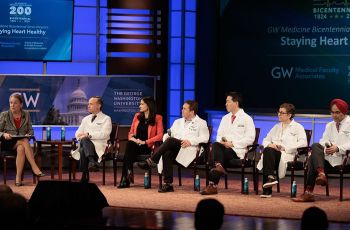
Medical cannabis is finally gaining ground, having the opportunity to prove its legitimacy in the healing sphere. Its availability and uses have extended beyond glaucoma and cancer patients, and societal acceptance of cannabis as a treatment option has improved.
To understand the differences between medical and recreational marijuana, it’s important to consider both intent and use. Dr. Mikhail Kogan, Medical Director at The George Washington Center for Integrative Medicine and Assistant Professor at The George Washington University School of Medicine and Health Sciences, mentions how the routes of administration for medical use often differ from casual use. For example, recreational marijuana is typically smoked, vaped or eaten. Medicinal use includes topical, rectal and sublingual applications.
Relationship Between CBD and THC
There are two prevalent ingredients in cannabis: tetrahydrocannabinol (THC) and cannabidiol (CBD). Understanding the relationship between the two sheds light on the effects of each.
THC is what people seek when they want to get “high” and experience the psychoactive results from consumption. “When you buy a product on the street or in a recreational dispensary, you’re going to get a product that has a very high percentage of THC,” shares Dr. Kogan.
CBD is the second most common ingredient in cannabis. The new market for CBD over-the-counter treatments includes supplements and salves for myriad conditions. “CBD itself is a pretty potent anti-inflammatory substance,” states Dr. Kogan.
Medical cannabis has a higher ratio of CBD to THC than recreational versions. Both substances have medicinal benefits, but CBD is the front-runner in medical application. Combining CBD, THC and other ingredients allows for greater potency in addressing health conditions than just using CBD alone.
The Endocannabinoid System
The endocannabinoid system is a more recent discovery—one that plays a significant role in inflammation. “It’s a very strong regulator of the immune system and also inflammatory responses,” explains Dr. Kogan.
We have receptors in almost every cell that comprise the endocannabinoid system. The brain stem has very few receptors, which is no surprise. This area of the brain controls basic body functions like breathing, heart rate and consciousness. “It’s responsible for a very high level of safety, in terms of use,” informs Dr. Kogan. “It has never been described that anyone has died from using cannabis at any dose.”
Benefits of using cannabinoids (CBD, THC) include controlling inflammation, balancing the immune system, and regulating hormones.
Future of Cannabis
Evidence of successful medical application of cannabis is growing. Cancer symptoms like nausea, vomiting and appetite loss have been eased through marijuana use for decades. More research is necessary to understand its application in other conditions, such as chronic pain.
“We need research to figure out the dosing, but the current data is very clear,” notes Dr. Kogan. “In 2017, reports put out by National Academies of Sciences had been conclusive, giving a ‘Grade A’ recommendation for use in chronic pain. Essentially, they’re saying we should be using it as a prescriber almost as a first line.”
As the research continues, Dr. Kogan believes cannabis will prove promising in other disease states as well. “I hope the next level of clinical research will head in a few directions, primarily all inflammatory conditions,” he notes. “Inflammatory bowel disease, perhaps neurodegenerative conditions such as Alzheimer’s and Parkinson’s. There’s also a very large amount of interest among the public in using cannabis as a disease-modifying approach for cancer.”



